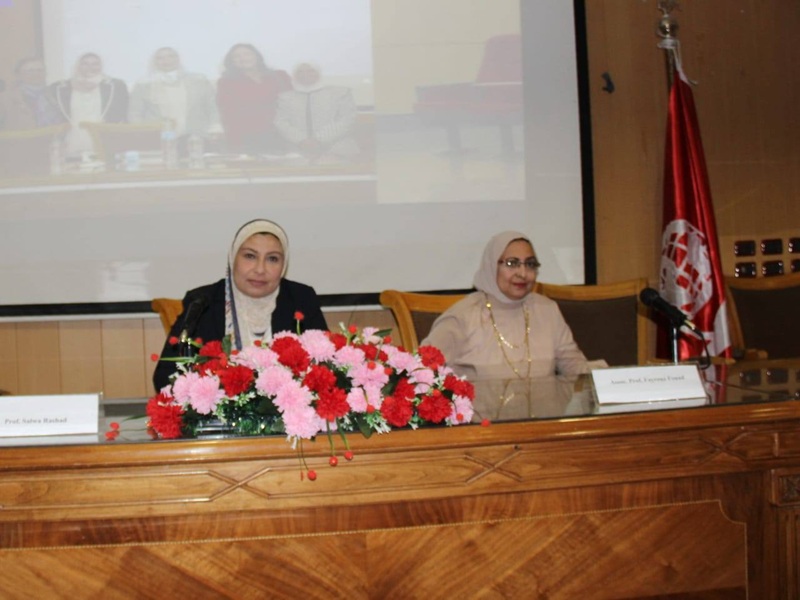The Dean of the Faculty of Al-Alsun at Ain Shams University inaugurated the fifth international conference of the English Department, titled "Intersectionality in Literature, Language, and Translation at the Faculty of Al-Alsun "
Prof. Salwa Rashad, Dean of the Faculty of Al-Alsun at Ain Shams University, inaugurated the 5th International Conference of the English Language Department at the Faculty, under the title "Intersectionality in Literature, Language, and Translation." The conference is held under the patronage of Prof. Mohamed Diaa Zain El-Abedeen, President of the University, Prof. Amani Osama Kamel, Vice President for Graduate Studies and Research, Prof. Salwa Rashad, Dean of the Faculty, and Prof. Ashraf Attia, Vice Dean for Graduate Studies and Research, with the attendance of Prof. Fadwa Kamal Abdel Rahman, Conference Coordinator.
In her speech, Prof. Salwa Rashad, Dean of the Faculty, emphasized that the department's last conference, titled "Beyond Borders: Paradigm Shifts in Literature, Linguistics, and Translation," held in 2023, discussed transcending established boundaries and constraints. This year's conference takes a tangible step forward, focusing on the dynamic intersection and its profound impact on literature, linguistics, and translation, highlighting the complex interaction between multiple academic disciplines and knowledge systems, including race, disability, geography, media, and artificial intelligence.
She noted that in this regard, our conference contributes to achieving Egypt's Vision 2030 and Ain Shams University's research vision by exploring the intersection of the aforementioned fields of literature, linguistics, translation, technology, and the social sciences, and the importance of this in addressing current and future local and global challenges, meeting real societal needs, and leading to innovation.
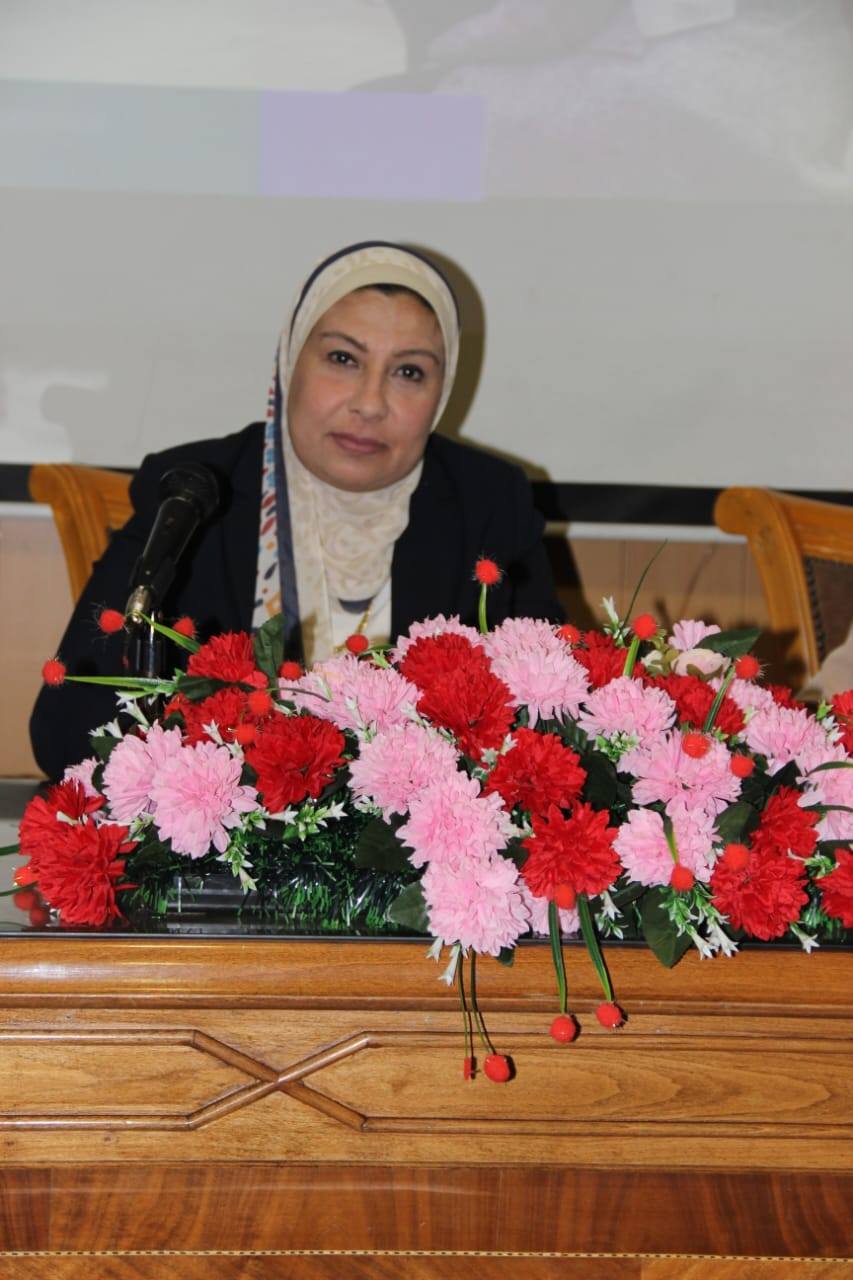 |
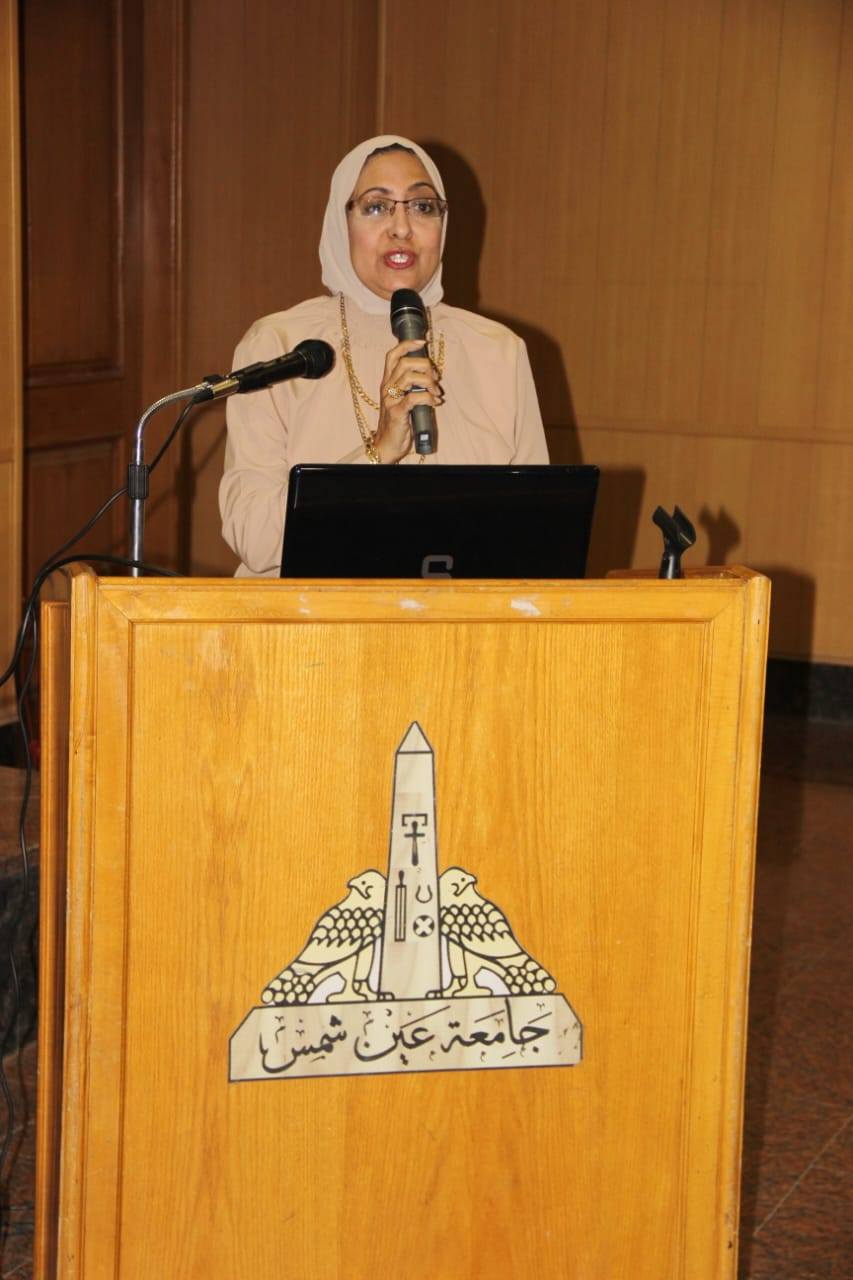 |
She added that the Faculty of Al-Alsun at Ain Shams University has, over the past years, taken strenuous measures to direct its research vision and performance in this direction. These measures include: developing research plans and regulations that are consistent with Egypt's Vision 2030 and Ain Shams University's research, in addition to the United Nations' Sustainable Development Goals; encouraging researchers to conduct applied research and explore interdisciplinary fields; encouraging international publication in prestigious international journals; strengthening international research cooperation with foreign universities, which resulted in two cooperation agreements within the framework of two joint master's programs between the University of Leipzig in Germany and the University of Salamanca in Spain; concluding a number of exchange agreements at the student and faculty level with a number of prestigious foreign universities, including the University of Tsukuba, Tokyo and Hiroshima in Japan, Hankuk University in South Korea, the Universities of Peking and Shanghai in China, Charles University in the Czech Republic, and Pablo de Olavide University in Seville, Spain, among others; enhancing translation training for students and researchers, in cooperation with the United Nations Interpretation and Translation Service; and establishing an innovation unit at the faculty. Linking it to economics, industry, and entrepreneurship, the program also established two interdisciplinary graduate programs: computational linguistics and translation technology. The goal is to apply artificial intelligence methods to support the use of technology in related fields, allowing for rapid responses to societal changes and labor market needs.
Prof. Fadwa Kamal Abdel Rahman, the conference coordinator, explained that the conference will host participants from all Egyptian universities, as well as Arab universities in Iraq and Jordan, and the University of Hong Kong in China. It will also host distinguished keynote speakers from the United States, the United Kingdom, Spain, and Cairo University. The conference will also include specialized seminars on the use of artificial intelligence in translation. These seminars will be addressed by Mr. Mahmoud Abdel-Ati Mohamed, Senior Arabic Language Translator at the World Bank, and Mr. Sameh El-Sharkawy, an international translator and trainer who holds an ISO certificate in translation.
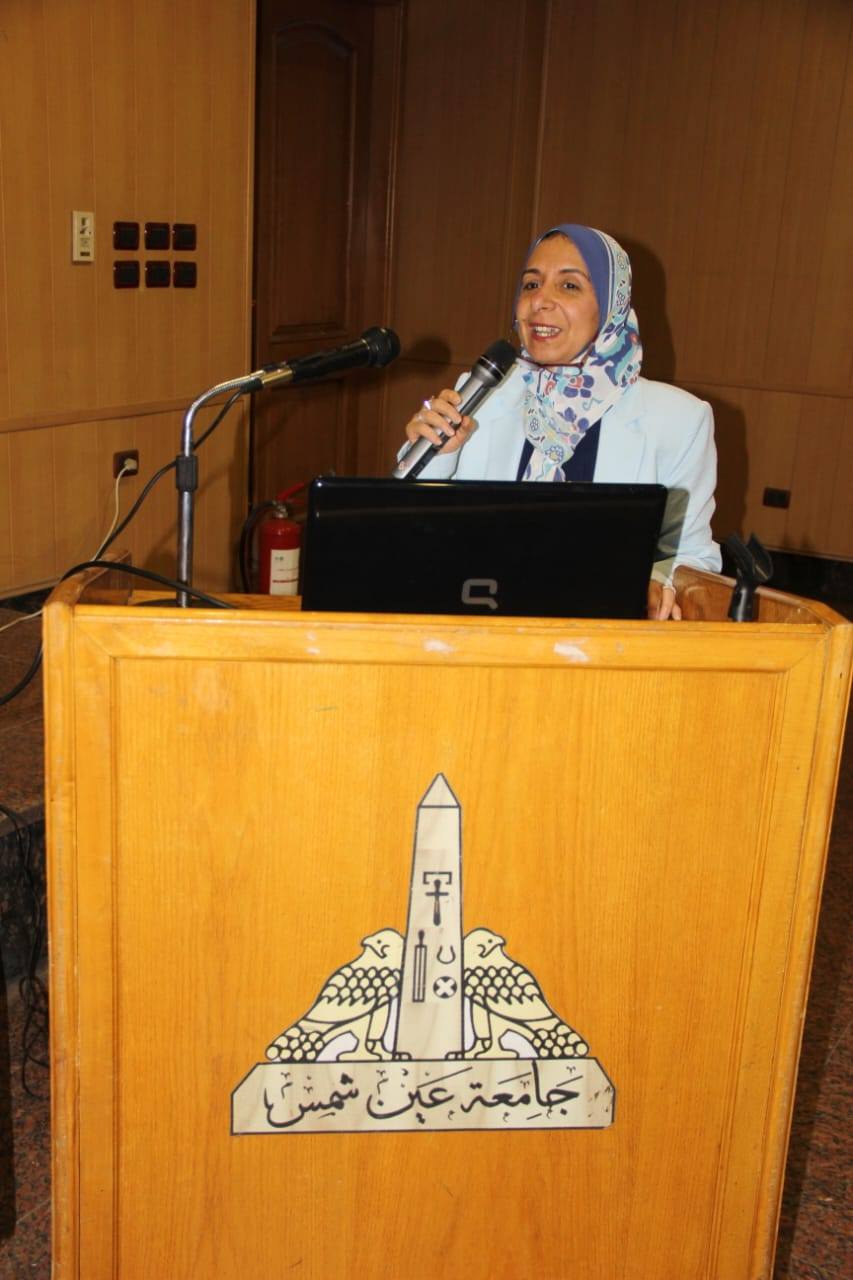 |
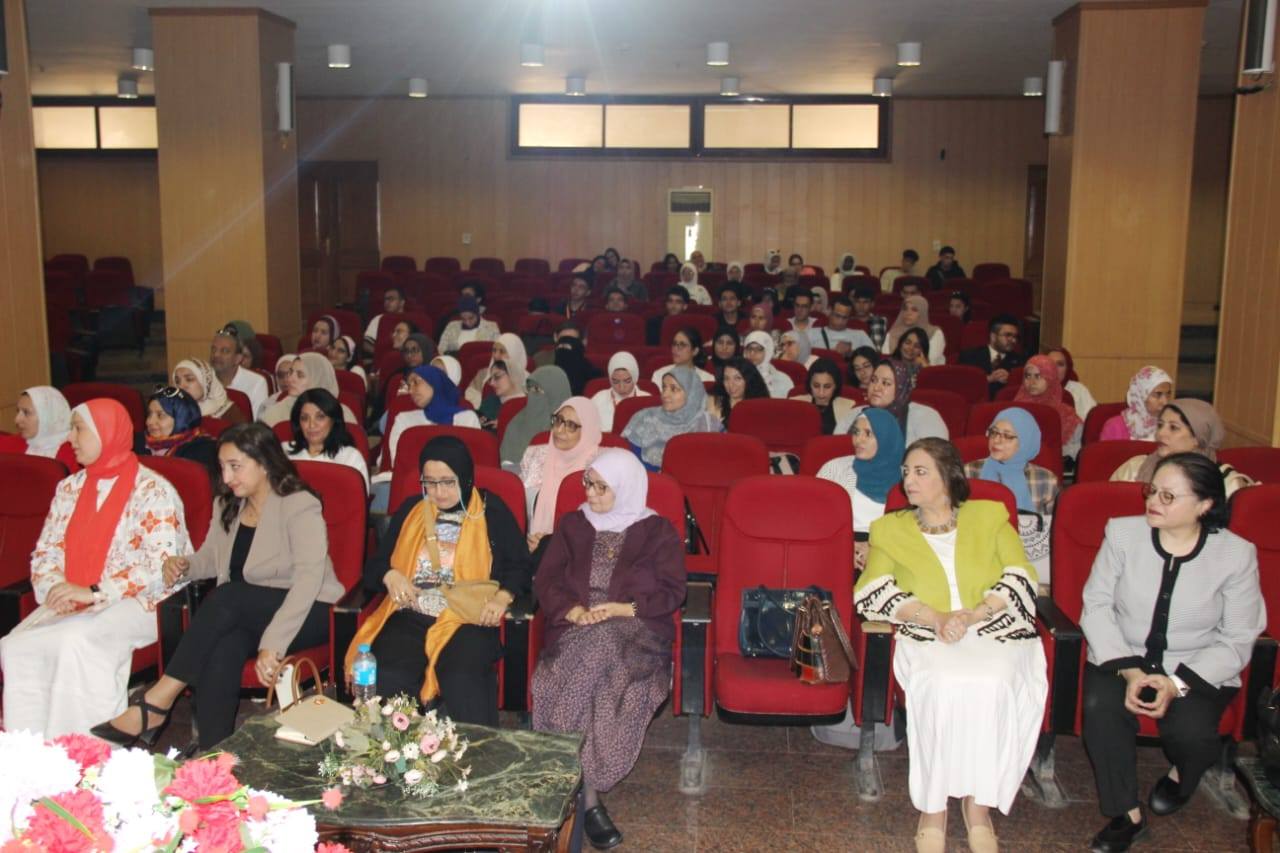 |
As Prof. Fadwa Kamal Abdel Rahman, the conference coordinator, emphasized, "We gather here today in the vibrant month of April, a month of renewal and growth, to embark on a journey of intellectual exploration." Our focus, intersectionality, is not merely a theoretical concept; it is a vital lens through which we can understand the complex and interconnected realities of the human experience. It challenges us to transcend single identities and acknowledge the multifaceted ways in which power operates, with some groups privileged and others marginalized.
In the world of literature, we will explore how authors navigate the complex fabric of identity, weaving narratives that illuminate the lived experiences of individuals who occupy multiple social categories. We will examine how language, in its many forms, reflects and shapes these intersections, revealing the subtle and often unspoken ways in which power dynamics are embedded in our communication.
In translation, we will face the crucial question of how to faithfully convey these complexities across linguistic and cultural boundaries. How do we ensure that the subtleties of identity and the layers of experience are not lost in the process of conveying meaning? How do we acknowledge the power dynamics inherent in the act of translation itself?
The Faculty of Al-Alsun, with its long history and dedication to the study of languages and cultures, provides the ideal setting for this dialogue. Ain Shams University, a beacon of knowledge in Egypt, has always been a champion of intellectual curiosity and critical engagement, and we are grateful for their support in making this conference a reality. Special thanks go to His Excellency the President of the University, Prof. Mohamed Diaa Zain El-Abedeen; the Vice President for Graduate Studies and Research, Prof. Amani Osama Kamel; the Dean of the Faculty, Prof. Salwa Rashad; and the Vice Dean for Graduate Studies and Research, Prof. Ashraf Attia.
Over the next few days, we will engage in thought-provoking discussions, share groundbreaking research, and foster collaborations that will push the boundaries of our understanding. We aim to create a space where diverse voices are heard, critical perspectives are valued, and where we can collectively work toward a more inclusive and equitable future.
Let us embrace the challenge of intersectionality, not as an abstract concept, but as a call to action. Let us commit to listening deeply, questioning assumptions, and building bridges of understanding across differences. Let us work together to highlight the power of literature, linguistics, and translation in shaping a world where all voices are valued and heard.
I wish you all a stimulating and enriching conference. May our time together be filled with insightful exchanges, meaningful connections, and a shared commitment to advancing the field of intersectional studies.


.svg)

